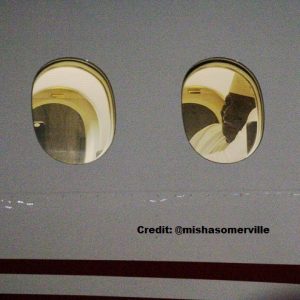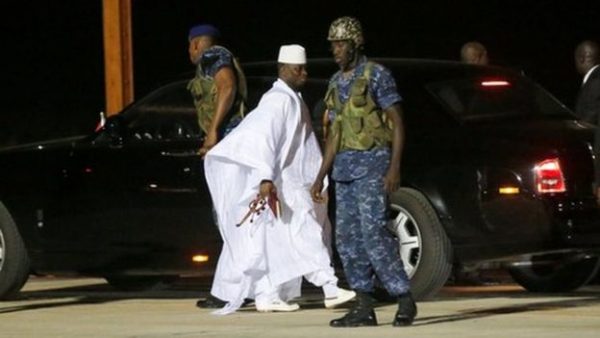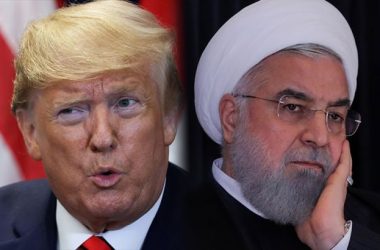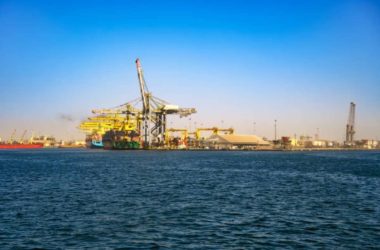
(JollofNews) – Images and imaginations
The human being regularly lives an imaginary life. We imagine things that do not exist, confusing ourselves by creating conflicts between what exists (the truth) and what does not (falsehood). We create images in our heads. We subject ourselves to these imaginary thoughts and use them to destroy ourselves and others.
Falsehood can be destructive, whether it precedes or succeeds the truth. Hitler in the 1930’s and 1940’s convinced Germans to destroy themselves and wage war on the world, because of ideals that were tantamount to false images.
In Italy, Mussolini did the same in supporting Hitler in the Axis Powers and to justify his brutal attack on Abyssinia. In Cambodia, within a period of only two years (1975-79), Pol Pot decimated an estimated 25% of his people, because of policy-induced starvation, overwork and executions.
In Rwanda, in 1994, the Hutu majority government convinced Hutus to carry out a genocidal mass slaughter of hundreds of thousands of Tutsis. In 2003, the US led its allies to invade Iraqi because it was believed that Saddam had weapons of mass destruction which he did not. We are still suffering from the consequences.
This is why the media and movies (the double “ms”) are so powerful. They appeal to our imagination and make us seek, love, desire and die for even what is not true. I once met an old lady who fled from the civil war in Sierra Leone in the 1990’s. I was very sad when she told me her story. I asked what I could do to help and the reply was: “A tv set, because we don’t have one where I stay”. No wonder, the media and movies have joined the ranks of the biggest businesses in the world. In the US, for example, the NSI’s total number of television homes in 2016 was 113,314,340. My old lady was not dreaming alone and dreaming without reason.
Let us come closer home, in fact let us come home. In 1981, Kukoi convinced thousands of peace-loving Gambians that “Enough is enough” and that they must fight the Senegalese “invaders” who forcefully brought Jawara back. A neighbour of mine on Tobacco Road (Banjul) stabbed a government vehicle several times in front of me. “Why are you doing this?” I asked. “Because it belongs to Jawara!” he replied. I have a friend who still carries the mark of a stray bullet, because he went with peers to watch a film called “The Arrival of the Senegalese Invaders”! They imagined that life would be better under Kukoi and many young Gambians died pursuing an ideal they did not understand. When our imaginations run wild, they can be destructive!
Smarter than you might have thought
Have you ever asked yourself why Jammeh was able to fire and hire Ministers even in the last days of his downfall? Have you asked why he was able to use an institution as solemn as our honourable National Assembly to extend his term by 90 days (three whole months!)? They cooperated with him even when his downfall should have been obvious. You have already had your answer.
Jammeh, as President, was actually smarter than most Gambians might have thought. Why do you think he claimed to cure AIDS and catch witches? Why do you think he wore a big white boubou and carried a big staff? Why do you think he carried the Glorious Qur’an (or what his critics say only looked like one) and always mentioned Allah (SWT) in his speeches (again which his critics say was only lip service)? I cannot judge him, but whether sincere or not in his looks and pronouncements, he succeeded in creating a trade mark in his appearance and an image of himself as a very serious Muslim.
Why did he chant “Al Samaday!”? This catchphrase was popularized by him among Gambians, most of whom knew neither its meaning nor where it came from. According to my sources in Brikama, the catchphrase originated from a very popular crazy man. He could look at people and tell their innermost secrets. Some people called him “the blessed mad man”. According one of these sources, the man walked into their home one day, for the first time, as she walked out of their house to join a crowd of family members and friends outside. The mad man looked at her and cried, “Oh you with a big stomach, who likes to hide in your room and eat all the futoo of the children!” “I almost collapsed, because that was exactly what I did that day!” she blushed, as she told me the story.
Why did he give himself so many titles? The first time I heard the many titles from a Gambian in Mauritania, I thought he was joking until the day I visited home and saw the names on billboards with the President’s pictures. A foreigner told me: “I love that name – Babili Mansa!” He loved it, even though he did not know what it meant. Why you think he gave himself all these names? You have already had your answer.
Undoubtedly, his strategy succeeded for almost 23 years. “We must not underestimate this President of ours!” a civil servant in Serekunda told me. There are many people who believed he could cure AIDS, although I personally knew one former patient who appeared on GRTS saying he was healed, but later admitted to me that he was still ill. There are some, in and outside The Gambia, who believed that he was eliminated, because he promoted Islam. As he intensified his Islamic utterances, it became clear in his last days that the former President wanted the “theory of the serious Muslim” to gain higher ground than that of the tribal card. Within the Gambian context, the Islamic card is very tolerant, but (like anywhere else) the tribal card could have been deadly if pushed too far.
The religious and tribal cards
Therefore, it was fortunate that he did not fan tribal sentiments the same way he did before the elections. He could have easily done so, as there were reports that a handful of ill-informed Jolas (in a settlement near where a relative of mine lives) buying cutlasses to attack Mandingos. Even more dangerous, was the unreported but confirmed firing of mortars into Kanilai by the Salif Sarjo Casamance rebels, which could have signaled a “tribal” onslaught in Foni. Miraculously, not a single person was hurt by this fire!
The entry of ECOWAS troops into Gambian territory on the 20th January provided an ideal moment for a potential massacre, just as the return of the RPF army provided the right moment for Rwandan Hutus to react to incitement by their leaders to slaughter Tutsis in 1994.
Maybe Jammeh did not use the tribal card, because he never seriously believed in it, like the rest of our people. Maybe he did not, because, as my friend Mustapha put it, “he is not suicidal”. In any case, we have to give credit to ordinary Gambians, including the Jolas, who did not form any militia. This is because we are a peaceful and “non-tribalistic” people (read “The King I” & “The King II”). As the former President himself proudly noted, after finally agreeing to step down, not a single life was lost throughout the political impasse?
The imagination and images that oppressive leaders use to perpetuate their actions may also destroy them in the end. This is what happened in Germany, Cambodia, Italy, Rwanda and recently in The Gambia. Jammeh’s human rights violations are definitely not comparable to Hitler’s, Pol Pot’s, Mussolini’s or those of the Hutu leaders in 1994. However, like them he successfully exploited his subjects’ fascination with imaginations and used this to create fear not only through his actions but also through his words and imagery (imagined and visual).
Jammeh had built an image of himself ruling The Gambia for probably “a billion years”. He had also said that there would never be a “Mandinka Government” again in the country. Naturally, he must have been taken aback by the truth that both dreams turned out to be untrue so soon. However, even when the reality struck, he imagined that he could hang on to power and evade the draculas on the Gambian streets who wanted his head for themselves or the ICC. Some of his supporters were quick to sense the reality and switch sides. Some of us can be rather “flexible”, rather fast! Others stayed with him for as long as possible in the vain pursuit of a dangerous fantasy.
Why was he so adamant?
There was so much at stake for Jammeh. The biggest was the possibility of being sent to the ICC. The longer we stay in political office, the more likely it becomes to do wrong things and the more wrongs we do the more difficult it becomes to quit the office.
The second was ceasing to be President and losing all the powers and privileges that go with it. The highest on this list was the possibility of losing the wealth he publicly stated would protect even his great grandchildren against poverty.
The figure of his net worth that has emerged since his departure sounds like a huge exaggeration ($900 – 2 billion!), but even a tenth of this, if true, is too much for a small economy such as The Gambia’s. Whatever the figure, it must be one of the main reasons why he imagined an army, Cabinet and National Assembly that would support him. The National Assembly, his closest advisers, and the security forces reinforced his imagination, even as numerous soldiers (including officers) deserted or folded their arms, and all his cabinet resigned or were fired.
ECOWAS military intervention, which I was opposed to because of the fear of potential losses of lives and the fact that Jammeh was already finished (especially after the oath of office of Barrow), has helped to crush his images of using the instruments of public office to stay in power. The arrival of his friends (the Presidents of Guinea and Mauritania, which I had suspected would happen in “The King II”) helped to turn them to dust. In the end, the ECOWAS intervention became necessary only as a show, rather than an exercise, of force. It facilitated Jammeh’s acceptance of the reality, but it was not the cause of his demise.
The demise of the Jammeh era was ironically engineered by himself, his advisors and some of his supporters. Internally, the coalition deserves credit (especially those who were arrested or killed). Externally, Gambians abroad have played their part through one of the most active social media campaigns in the world, financial contributions and encouraging friends and relatives at home to support the Coalition. There is much that the world can learn from this exemplary combination of national actions or citizens’ power, serious regional military threat and high-level diplomacy.
As he finally left for the airport Jammeh told the press, “Allah has decided that this is the end of my term….” Unfortunately, it took him so long to realize and/or accept this and in the process destroyed all the chances of the advocates of peace and reconciliation, such as myself, to have him retire in Kanilai! There is something we can learn from this experience through the Glorious Qur’an, which the former President always carried: “They are deaf, dumb, and blind, so they return not to the Right Path” (2,18). Images, even when they appear fragile, may be impossible to break away from.
Drums of war
On Saturday, January 14th, after the failure of the ECOWAS negotiators to reach agreement with Jammeh, the day before, the drums of war started to be beaten with ferocity. Most of the strongest men and women from The Gambia and outside the nation were smashing them with all their energy. The strongest muscles were descending on them! “Attack! Attack!” the chorus went, as in a match of gladiators. Yahya Jammeh had again given his enemies the opportunity they had been looking for for almost 23 years – get his head!
I received a message the next day from a nephew: “A military strike is imminent in the next 24-48 hours!” That was what I never wanted to hear, just what I never wanted to hear! Nobody seemed to be listening to my call for a peaceful solution to the deadlock! In search of shoulders to cry on, I wrote to my family and friends:
My dear family and friends,
I was told by some of you yesterday that military action is imminent within the next 48 hours; this means within the next 24 hours! As military action becomes imminent, should we stop praying for peace? NO! Unless we hear the sound of gunfire, we must not!
However, we must NOT pray for peace, whilst our hearts are calling for war; that is like Jammeh saying he believes in Allah (SWT) whilst challenging His Will and subjecting his nation to the possibility of unnecessary bloodshed.
I have no doubt that Jammeh’s Presidency is over, by the Will of God. God always shows us His Signs, but we are often too blind to see them. All those who are clamouring for military intervention seem unable to understand or accept that even without this, Insha Allah Yahya would go after the 19th. So why shed innocent blood for what is inevitable? As I had stated before, what we are seeing now are the last kicks of a dying horse. So why should we shoot a dying horse and risk killing innocent bystanders?
I have done and I am doing my part. I have and continue to pray. I have written and my stories have reached the apex of ECOWAS. Last night, I wrote to two friends of Yahya (one a head of state), both of whom I have met outside The Gambia. I believe he may listen to them IF they accept my request to reason with him. I am yet to get a response. I have even tried to contact Yahya directly, but was again told not to!
I have and continue to do what I can to seek a peaceful end to this crisis, which unfortunately Jammeh’s recalcitrance is making impossible, only FOR NOW.
I wish to ask all of you to continue with prayer and patience from YOUR HEARTS. Use the famous Mandinka dua: ALLAH MANG NTANKALA KATA NING KATA TO’OLLA!”
Difficult to translate, but I think it means: “May Allah (SWT) protect us against trouble and trouble makers!” AMEEN YAA RABBIL AALAMEEN!
See part 2 tomorrow






Glad, very glad he f**ked off to the Equator! Ain’t you?